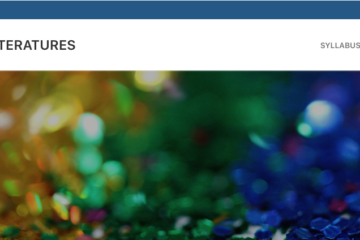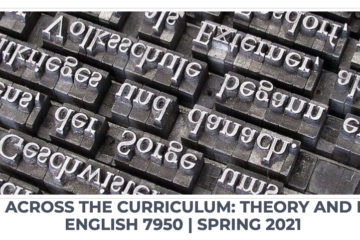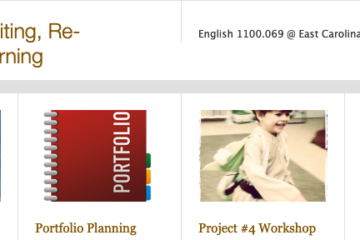Pundits of digital media and the Internet, traditionalist bibilophiles, stand-up comedians, arm-chair philosophers — all have expressed some of our collective cultural anxieties about the Internet and what it stands for. Some worry about the often-spastic, fast-paced movement of image and word that assault us when we go to MySpace; others fear that the Internet will mean the end of paper-bound books; still others fear that the English language itself will never recover from the constant assault of acronyms, neologisms, back-formations, and (mis)spellings that seem part-and-parcel of language use in digital media.
While some of these concerns are certainly worth paying attention to, this course on “Digital Writing” will focus both on how and why we write in digital contexts, from word processing (whatever that is) to new media (whatever that is), from Tweets and Status Updates to blog posts and RSS feeds. Throughout this course, we will turn an anlytical eye toward various types of digital writing/composing and we’ll likewise work to compose our texts using various digital media. Throughout the semester, we will be asking the following sorts of questions:
- What is digital writing/composition? How is it different from/similar to more traditional methods of writing or composing?
- What genres exist in digital spaces? What are the conventions of those genres? How does composing in those genres change our writing processes and products?
- How do different forms of writing convey values about the writer? the subject? the culture that produces it?
- What are 21st Century Literacies and how do we prepare for the “writing events” that are still to come?


